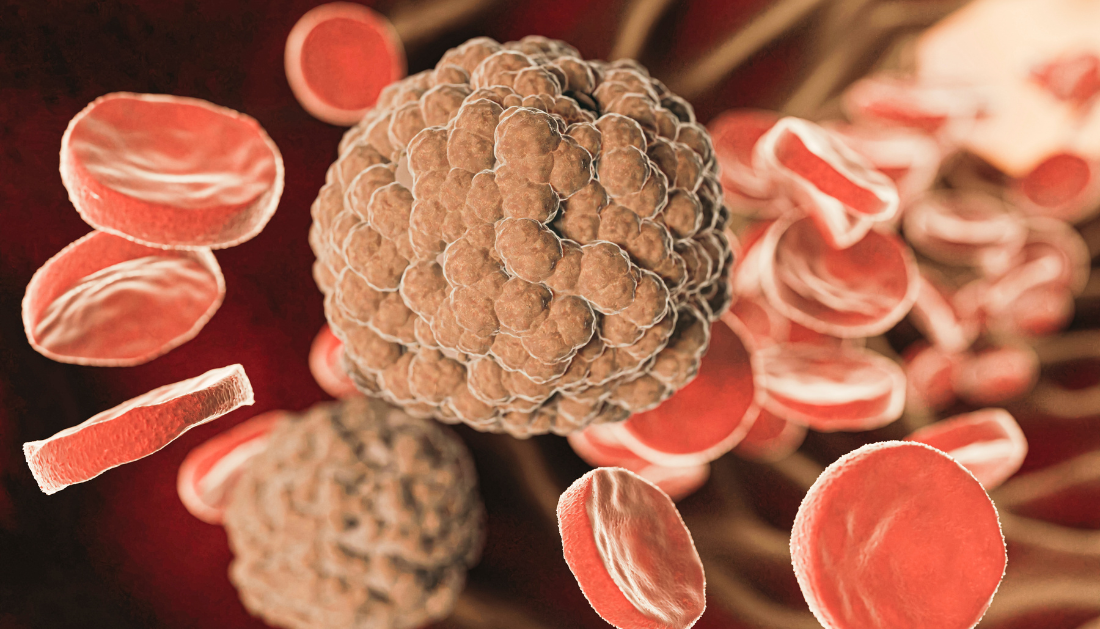

Led by JAX Assistant Professor Chih-Hao “Lucas” Chang, Ph.D., the research focuses on cytotoxic T-cells, a subset of immune cells that may fight off bacterial infections and other diseases in addition to eliminating virus-infected cells. They target cancerous cells as well. Most malignant cells are removed from our bodies by our immune systems before they have a chance to create any issues. However, given the hostile tumor microenvironment, cytotoxic T-cells get “exhausted” after a tumor becomes established, making them less efficient in attacking malignancies. Chang and associates are looking at the reasons behind these immune cells’ exhaustion as well as possible strategies to induce them to start focusing on tumors again.
“T-cells are excellent at identifying and attacking cells that become cancerous, but they can become exhausted in the tumor microenvironment; they can become overworked and overstimulated, while also being starved of glucose and other nutrients by tumor cells. Helping these cells to function better could improve cancer treatment strategies, particularly immunotherapies,” said Chang, whose work appears in Cancer Immunology Research.
Prior research has demonstrated that cytotoxic T-cell activation results in the release of cytokines, which are signaling molecules. Chang et al. concentrated on one of these cytokines, interleukin-3 (IL-3), and found that cytotoxic T-cells gradually lose their capacity to produce IL-3 within the tumor microenvironment as the tumor grows. Chang then noticed powerful anticancer effects when he increased IL-3 levels in mice with lymphoma or melanoma tumors.
Chang’s group also discovered that basophils, an uncommon immune cell that may also be involved in allergies, are activated by IL-3. These basophils then go on to make interleukin-4 (IL-4), another cytokine that tells cytotoxic T-cells to start looking for and eliminating tumors again.
Basophils have not previously been implicated in the signaling cascade for reinvigorating cytotoxic T-cells. These findings are preliminary, but targeting tumor-associated basophils represents a promising avenue for enhancing antitumor immunity and improving patient outcomes.” – Chih-Hao “Lucas” Chang, Ph.D., JAX Assistant Professor
For more information: IL3-Driven T Cell–Basophil Crosstalk Enhances Antitumor Immunity, Cancer Immunology Research, https://doi.org/10.1158/2326-6066.CIR-23-0851
more recommended stories
 Red Blood Cells Improve Glucose Tolerance Under Hypoxia
Red Blood Cells Improve Glucose Tolerance Under HypoxiaKey Takeaways for Clinicians Chronic hypoxia.
 Nanoplastics in Brain Tissue and Neurological Risk
Nanoplastics in Brain Tissue and Neurological RiskKey Takeaways for HCPs Nanoplastics are.
 AI Predicts Chronic GVHD Risk After Stem Cell Transplant
AI Predicts Chronic GVHD Risk After Stem Cell TransplantKey Takeaways A new AI-driven tool,.
 Red Meat Consumption Linked to Higher Diabetes Odds
Red Meat Consumption Linked to Higher Diabetes OddsKey Takeaways Higher intake of total,.
 Pediatric Crohn’s Disease Microbial Signature Identified
Pediatric Crohn’s Disease Microbial Signature IdentifiedKey Points at a Glance NYU.
 Nanovaccine Design Boosts Immune Attack on HPV Tumors
Nanovaccine Design Boosts Immune Attack on HPV TumorsKey Highlights Reconfiguring peptide orientation significantly.
 High-Fat Diets Cause Damage to Metabolic Health
High-Fat Diets Cause Damage to Metabolic HealthKey Points Takeaways High-fat and ketogenic.
 Acute Ischemic Stroke: New Evidence for Neuroprotection
Acute Ischemic Stroke: New Evidence for NeuroprotectionKey Highlights A Phase III clinical.
 Statins Rarely Cause Side Effects, Large Trials Show
Statins Rarely Cause Side Effects, Large Trials ShowKey Points at a Glance Large.
 Anxiety Reduction and Emotional Support on Social Media
Anxiety Reduction and Emotional Support on Social MediaKey Summary Anxiety commonly begins in.

Leave a Comment